(Amended on 30 October 1992)
§75
Annex 6
(1) The proceeds gained from any criminal act, or a sum equivalent thereto, may, either wholly or in part, be confiscated. Where there is no means of establishing the size of such an amount, a sum thought to be equivalent to the proceeds gained may be confiscated.
(2) The following objects may also be confiscated where this must be regarded as necessary in order to prevent further offences, or where additional special circumstances make further offences likely:
(1) Objects which have been used, or were intended to be used, in a criminal act;
(2) Objects produced by a criminal act; and (3) Objects with respect to which a criminal act has otherwise been committed.
(3) In place of confiscation of the objects referred to in subsection (2) above, a sum may instead be confiscated which is equivalent to their value or a part thereof.
(4) In place of confiscation under subsection (2) above, arrangements concerning the objects may instead be decided upon for the purpose of preventing further offences.
(5) When an association is dissolved by judgement, its capital, documents, protocols etc. may be confiscated.
§76
(1) Confiscation under section 75 (1) of this Act may be from any person to whom the proceeds of a criminal act have directly passed.
(2) Confiscation of the objects and amounts referred to in section 75 (2) and (3) of this Act may be from any person who is responsible for the offence and also from someone on whose behalf such a person has acted.
(3) Specially protected rights over confiscated objects lapse only after the court’s decision under circumstances similar to those referred to in subsection (2) above.
(4) Where one of the persons referred to in subsections (1) and (2) above has, after the criminal act, disposed of the proceeds or of objects of the kind referred to in section 75 (2) of this Act, or of rights thereover, the transferred property or its value may be confiscated from the acquirer if he knew of the connection of the transferred property to the criminal act, or has displayed gross negligence in this respect, or if the transfer to him was gratuitous.
(5) Where a person who is liable to confiscation under subsections (1)-(4) above dies, his liability lapses. This shall not apply to confiscation under section 75 (1) of this Act.
§77
(1) Where there is confiscation under section 75 (1) of this Act and a person has claim to damages on account of the offence, the confiscated property may be used in satisfaction of the claim of damages.
(2) The same shall apply to goods and money confiscated under section 75 (2) and (3) of this Act, if a decision to this effect is made in the judgement.
(3) Where the offender has, in one of the situations referred to in subsections (1) and (2) above, paid the injured party compensation after judgement, the confiscated sum shall be proportionately reduced.
§77a Where it must be supposed that objects would, because of their character in the light of other existing circumstances, be used in a criminal act, they may be confiscated if that is regarded necessary for the prevention of the criminal act. Section 75 (4) of this Act shall similarly apply here.
§191
(1) Any person who, in contravention of the legislation on euphoriant drugs, supplies such drugs to a considerable number of persons, or in return for a large payment, or in any other particularly aggravating circumstances, shall be liable to imprisonment for any term not exceeding 6 years. If the supply relates to a considerable quantity of a particularly dangerous or harmful drug, or if the transfer of such a drug has otherwise been of a particularly dangerous character, the penalty may be increased to imprisonment for any term not exceeding 10 years.
(2) Similar punishment shall apply to any person who, in contravention of the legislation on euphoriant drugs, imports, exports, buys, distributes, receives, produces, manufactures or possesses such drugs with intention to supply them as mentioned in subsection (1) above.
§191a Any person who receives or provides for himself or others a part of a profit obtained by contravention of section 191 of this Act, and any person who by storing, transporting, assisting in the disposal or in a similar manner acts in order to secure for another person the profit from such contravention, shall be liable to imprisonment for any term not exceeding 6 years.
§276
Any person who, without the consent of the possessor, carries away any tangible object for the purpose of obtaining for himself or for others an unlawful gain by its appropriation shall be guilty of theft. For the purpose of this and the following sections, any quantity of energy that is produced, conserved or utilized for the production of light, heat, power or motion or for any other economic purpose shall be recognized as equivalent to a tangible object.
§277
Any person who, for the purpose of obtaining for himself or for others an unlawful gain, appropriates any tangible object which is not in the custody of any person or which has come into the hands of the perpetrator through carelessness on the part of the owner or in any similar accidental way shall be guilty of misappropriation of objects found.
§278
(1) Any person who, for the purpose of obtaining for himself or for others an unlawful gain,(1) Appropriates any tangible object belonging to any other person and which is in his custody, in circumstances other than those covered by section 277 of this Act; or
(2) Refuses to acknowledge receipt of a pecuniary or any other loan, or of a service for which a remuneration shall be paid;
(3) Unlawfully spends money that has been entrusted to him, even if he was not under an obligation to keep it separate from his own funds;
shall be guilty of embezzlement.(2) The provision in para. 1 of subsection (1) above shall not include dispositions of articles that have been bought and with respect to which the vendor has reserved property until the purchase price has been paid.
§279
Any person who, for the purpose of obtaining for himself or for others an unjustified gain, by unlawfully bringing about, corroborating or exploiting a mistake, induces any person to do or omit to do an act which involves the loss of property for the deceived person or for others affected by the act or omission, shall be guilty of fraud.
§279a Any person who, for the purpose of obtaining for himself or for others an unjustified gain, unlawfully changes, adds or erases information or programs for the use of electronic data processing, or who in any other manner attempts to affect the results of such data processing, shall be guilty of computer fraud.
§280
Any person who, for the purpose of obtaining for himself or for others an unlawful gain, involves some other person in a loss of property,
(1) By abusing an authority conferred on him to act with legal effect on behalf of the latter;
(2) By acting against the interests of the person concerned in respect of property held in trust by him on behalf of that person;
shall, provided the case is not covered by sections 276-279a of this Act, be guilty of breach of trust.
§281
Any person who –
(1) For the purpose of obtaining for himself or for others an unlawful gain, threatens some other person with violence, substantial damage to goods or deprivation of liberty, with making a false accusation of having committed a punishable act or dishonourable conduct or with revealing matters appertaining to his private life; or who
(2) Threatens some other person with denouncing or revealing a punishable act, or with making true accusations of dishonourable conduct for the purpose of obtaining for himself or for others a gain which was not justified by the action which was the reason for the threat;
shall, provided the case is not covered by section 288 of this Act, be guilty of extortion.
§282
Any person who takes advantage of another person’s serious economic or personal difficulties, lack of knowledge, irresponsibility or existing state of dependence in order to obtain or stipulate in a contract any payment which is out of all proportion to the return, or for which no payment is due, shall be guilty of usury.
§283
(1) Any person who, for the purpose of obtaining for himself of for others an unlawful gain,
(1) Sells, pawns, mortgages or in any other way disposes of property belonging to him, but on which a third party has acquired a right with which the act is incompatible; or
(2) Subsequent to the institution of bankruptcy proceedings against him or to the commencement of negotiations to agree on a composition, undertakes acts aimed at withdrawing from creditors the property and interests in the estate; or
(3) By false pretences, concealment, abuse of contractual forms, substantial gifts, excessive consumption, sales at cut prices, payments of or deposit of guarantee for debts not due or in any other similar manner withdraws his property or interests from his creditors or from any one of them;
shall be guilty of misappropriation of funds.
(2) If acts of the nature indicated in para. 3 of subsection (1) above have been undertaken for the benefit of a creditor, the latter shall be liable to punishment only if, at the time when be foresaw the imminence of bankruptcy or the suspension of payments by the debtor, he induced the debtor to grant him such facilities.
§284
Any person who accepts or obtains for himself or for others a share in profits acquired by theft, unlawful detention of objects found, embezzlement, fraud, computer fraud, breach of trust, extortion, misappropriation of funds or robbery, and any person who, by hiding the articles thus acquired, by assisting in selling them or in any other similar manner helps to ensure for the benefit of another person the profits of any of these offences, shall be guilty of receiving.
§285
(1) The offences referred to in sections 276, 278-281 or 283 of this Act as well as receiving in connection with such offences or with robbery or usury shall be punished with imprisonment for any term not exceeding one year and 6 months. In the circumstances dealt with in section 283 (2) of this Act, the penalty in respect of the debtor as well as of the creditor who has benefited may be reduced to simple detention.
(2) Misappropriation of objects found and receiving in connection with such offences shall be punished with a fine or simple detention or imprisonment for any term not exceeding one year and 6 months.
§286
(1) If the theft is of a particularly aggravated nature, for example because of the manner in which it was committed, or because it was committed by several persons in association, or because weapons or any other dangerous instruments were brought along, or because of the high value of the objects stolen, or the conditions under which they were kept, or where a large number of thefts has been committed, the penalty may be increased to imprisonment for up to 4 years.
(2) The penalty for embezzlement, fraud, computer fraud, breach of trust, or misappropriation of funds may, where the offence is of a particularly aggravated nature or where a large number of such offences has been committed, be increased to imprisonment for up to 8 years.
(3) The penalty of extortion, usury or receiving may, under similar circumstances, be increased to imprisonment for up to 6 years.
§287
(1) If any of the offences dealt with in sections 276-284 of this Act is of minor importance because of the circumstances under which the punishable act was committed, because of the small value of the objects appropriated or of the loss of property sustained or for any other reason, the penalty shall be a fine. In further mitigating circumstances, the penalty may be remitted.
(2) Attempt at a crime covered by subsection (1) above shall be punishable.
§288
(1) Any person who, for the purpose of obtaining for himself or for others an unlawful gain, by violence or threat of immediate application of such,(1) Takes or extorts from any other person a tangible object belonging to the latter; or
(2) Carries away any stolen object; or
(3) Forces some other person to commit any act or make any omission involving that person or any other person for whom he is acting in a loss of property;
shall be guilty of robbery and liable to imprisonment for any term not exceeding 6 years.
(2) If the robbery has been carried out in particularly dangerous circumstances or in particularly aggravating circumstances, the penalty may be increased to imprisonment for any term not exceeding 10 years.
§289
Any person who is guilty of tax evasion (see section 13 (1) of the Tax Control Act) of a particularly serious nature shall be liable to imprisonment for any term not exceeding 4 years. A person shall be similarly liable who is guilty of smuggling (see section 123 (1) of the Customs Act) of a particularly serious nature, or who is similarly guilty of a breach of section 123 (3) of the Customs Act.
§290
(1) Any misappropriation of funds that has not involved any right especially protected shall be prosecuted only at the request of the injured party, or if a subsequent execution distraint has failed to satisfy a creditor, if bankruptcy proceedings have been instituted, if negotiations to agree on a composition have been commenced, or if a petition in bankruptcy has been refused owing to insufficiency of the assets of the estate.
(2) In the case of theft, unlawful detention of objects found, embezzlement, fraud, or receiving committed against any near relative of the offender, and in the circumstances dealt with in section 287 of this Act, prosecution may be waived at the request of the injured party.
§300
(1) Any person who,
(1) At a time when he is aware or ought to be aware of his inability to satisfy his creditors seriously aggravates his economic circumstances by incurring new debt, or pays or deposits guarantees for substantial debts that have fallen due; who
(2) Involves his creditors in a substantial loss by extravagant habits, by gambling, by hazardous enterprises which are out of proportion with his economic circumstances, by grave mismanagement of his affairs or by any other careless conduct; or who
(3) In his capacity as debtor or authorized agent makes incorrect statements when submitting the declarations necessary for the commencement of negotiations to agree on a composition or who is guilty of grave carelessness;
shall be liable to imprisonment for any term not exceeding one year or to simple detention or, in mitigating circumstances, to a fine.
(2) Prosecution shall take place only on the conditions laid down in section 290 (1) of this Act.
§300a Any person who, in circumstances to which the provisions of section 279 of this Act do not apply, intentionally or by gross negligence brings about in an unlawful way that a person, who is under a delusion, because of this acts, or omits to act, thereby causing him or any other person affected by the act or omission, a serious loss of property, shall be liable to a fine, to simple detention or to imprisonment for any term not exceeding 6 months.
§300b Any person who, in circumstances to which the provisions of section 282 of this Act do not apply, by entering into a contract in an improper fashion, takes advantage of the other party’s economic difficulties or otherwise of his inferior position, shall be liable to a fine, to simple detention or to imprisonment for any term not exceeding 6 months.
§300c Any person who transfers a claim which originates from another’s act of the nature described in sections 282, 300a or 300b of this Act, or who advances such a claim, shall, if by virtue of his acquisition of the claim he knew of, or showed gross negligence with respect to its character, be liable to a fine or to simple detention or to imprisonment for any term not exceeding 6 months. A person shall be similarly liable who otherwise intentionally or by gross negligence derives an undue advantage from another’s act of the nature referred to in sections 282, 300a or 300b of this Act.
§303
Any person who is guilty of gross negligence in acquiring by purchase or in receiving in any other similar manner objects acquired through an offence against property shall be liable to a fine or to simple detention. In the case of recidivism or if the offender has been previously convicted of an offence against property, the penalty may be increased to imprisonment for up to 6 months.




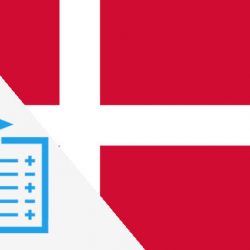
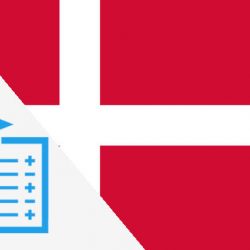
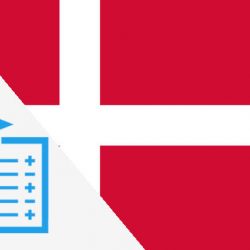
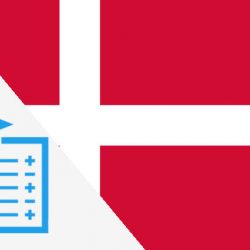
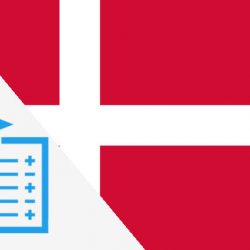
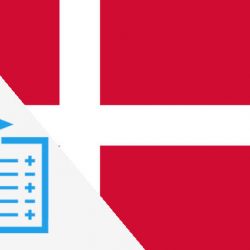
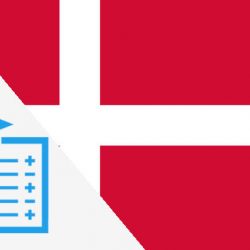
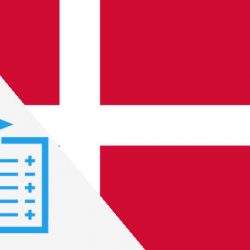
 We will not leak your personal information
We will not leak your personal information